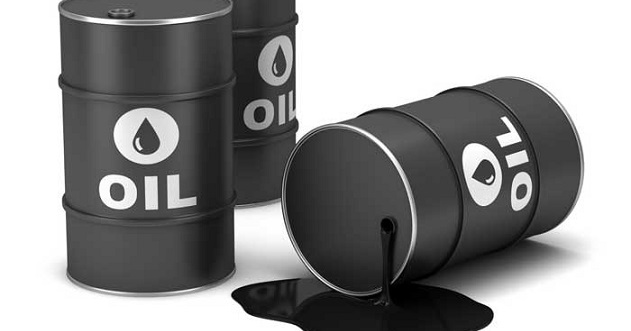Business
Oil price rises on blockade of Libya’s major oilfields; here are the implications for the Nigerian economy

Global oil market responded to the escalating crisis in Libya on Monday after a proposed peace talk, intended to bring the shutters down on the country’s near decade civil war fell Met a brick wall.
World leaders had gathered in Berlin on Sunday to hash out a ceasefire in Libya but Khalifa Haftar, the country’s eastern commander launched a shutdown of Libya’s major oilfields instead, throwing the nation to its lowest production level since the build-up to Muammar Gaddafi’s slaughter in 2011.
Beyond the impact of the Libyan conflict on oil prices, reports say that some output in Iraq was shut down also, suggesting that the rise in oil prices might be sustained in the next few days.
Global oil prices’ vulnerability to geopolitical tensions surfaced for the second time this year, the first being the escalation of the US-Iran crisis in the aftermath of the assassination of Iranian top commander, General Qasem Soleimani on 3rd January.
Brent crude, spiked to $66 a barrel on Monday, its highest in almost two weeks, before easing at $65.20.
Peaking at $59.73, also its highest in about the same period, West Texas Intermediate (WTI) later settled at $58.66.
Haftar had ordered a closure of several ports last week notably the $300,000 barels per day (bpd) Sharara reputed to be the largest oilfield in Libya, itself the country with the biggest proven oil reserves on the continent.
There is a balance of interest from the west in the country’s two opposing sides as a strategic positioning for the control of Libya’s energy resources.
Haftar has the backing of Vladimir Putin’s Russia, who has being an active player in the campaign for oil cut in recent times.
Fayez al-Sarraj, Libya’s internationally recognised prime minister, is a sweetheart of Turkey, who are providing military aid in the form of training to forces loyal to al-Sarraj as well as to Syrian rebels who have joined the hostility.
Read also: NSE: Bank stocks dominate trade as market gains N48 billion
As the United Nations move to broker a ceasefire in few days ahead, the battle for the soul of the oil-rich nation remains uncertain as Haftar has already mustered support from the Arab world following the backing it has received from both Egypt and the United Arab Emirates (UAE).
The reverberations of Haftar’s defiant gesture of rejecting the truce deal arranged by world leaders are most resonant in the likely massive fall in Libya’s oil output which Bloomberg report said could fall to 72,000 bpd from 1.2 million “once its storage tanks are full.”
Haftar’s ambition in placing a blockade on oil production was a ploy to weaken al-Sarraj’s military strength to the barest minimum by denying him access to oil money, the main source of purchasing arms and ammunition and running the business of governance.
The surge in oil price will spur a concomitant increase in Nigeria’s external reserves. Brent crude, against which Nigeria’s Bonny Lite is benchmarked, has been on an upward movement, meaning that Nigeria’s crude oil earnings will swell further if the trend is sustained.
Join the conversation
Support Ripples Nigeria, hold up solutions journalism
Balanced, fearless journalism driven by data comes at huge financial costs.
As a media platform, we hold leadership accountable and will not trade the right to press freedom and free speech for a piece of cake.
If you like what we do, and are ready to uphold solutions journalism, kindly donate to the Ripples Nigeria cause.
Your support would help to ensure that citizens and institutions continue to have free access to credible and reliable information for societal development.






















